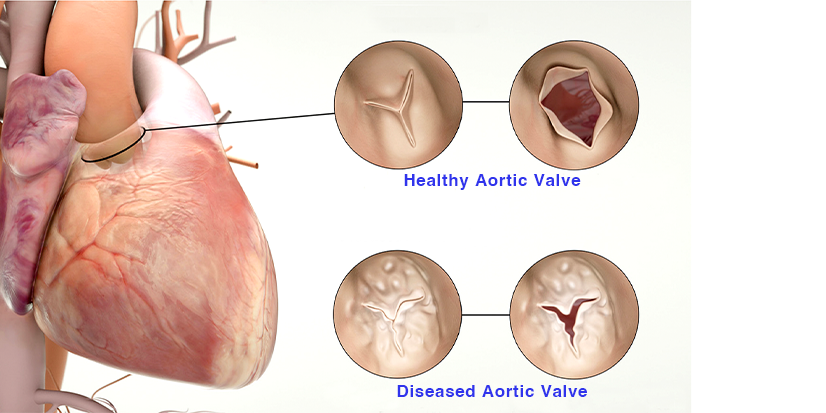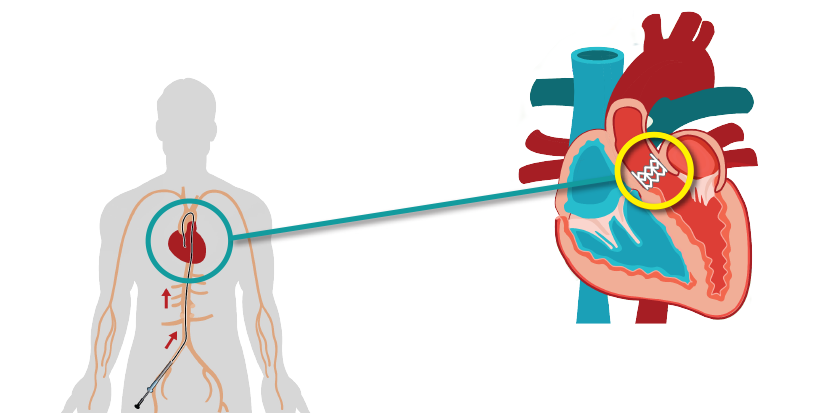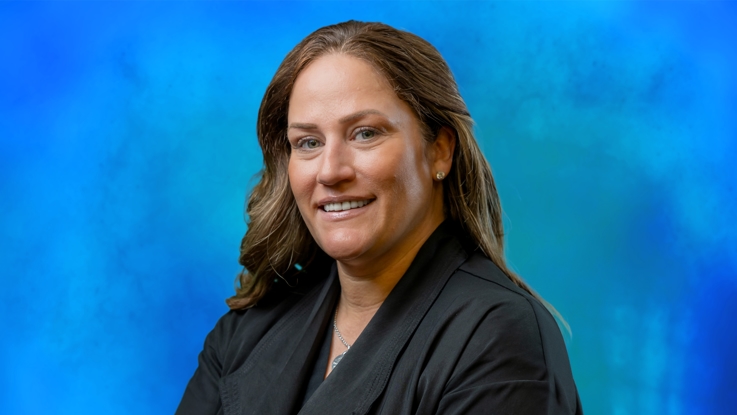New Minimally Invasive TAVR Procedure Used to Treat Aortic Stenosis
- Category: In The News, Heart Health
- Posted On:
- Written By: Charlie Shelton, DNP, CVNP-BC, FNP-C

So, you’ve been diagnosed with Aortic Stenosis.
Aortic stenosis occurs when your heart’s aortic valve (which directs blood flow) narrows or becomes stiff. This means the valve doesn’t open fully or is blocked due to calcium buildup, making it hard for your heart to pump blood throughout your body. If left untreated, your heart must work harder to pump blood effectively, which may lead to heart failure, stroke and increased risk for sudden death.
Severe aortic stenosis is not preventable. The most common cause of aortic stenosis is excessive wear on the aortic valve, which usually develops with age. Still, the process may be expedited in patients congenitally predisposed to the disease. It may also be related to patients with a history of rheumatic fever or high cholesterol, medications or radiation therapy.
Your treatment plan for aortic stenosis depends on the severity of your condition and symptoms, but valve replacement is likely.

Is TAVR Right for You?
North Oaks Cardiovascular Services has implemented a new minimally invasive procedure called TAVR (Transcatheter Aortic Valve Replacement).
TAVR is an option for people with severe aortic stenosis at low, intermediate or high risk for valve replacement surgery. Using a small incision, a flexible tube (catheter) is inserted into a blood vessel, usually in the groin or chest area, to reach the heart. A new valve is installed through the catheter into the damaged aortic valve. Once implemented, the valve is inflated — much like a stent — and deploys to look and perform just like a natural heart valve.

TAVR is an alternative to open-heart aortic valve replacement surgery and can be an effective option to improve the quality of life in people who otherwise have limited or no options for aortic valve repair.
The minimally invasive procedure also reduces patient recovery time with less pain and less trauma to the chest and heart and lowers the risk of infection. However, as with any medical procedure, there may be complications or risks depending on your specific health condition. Discuss your concerns with your healthcare provider.




